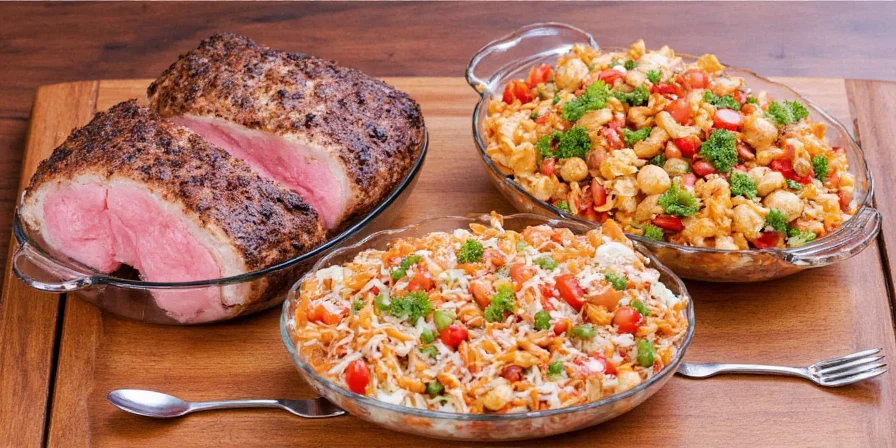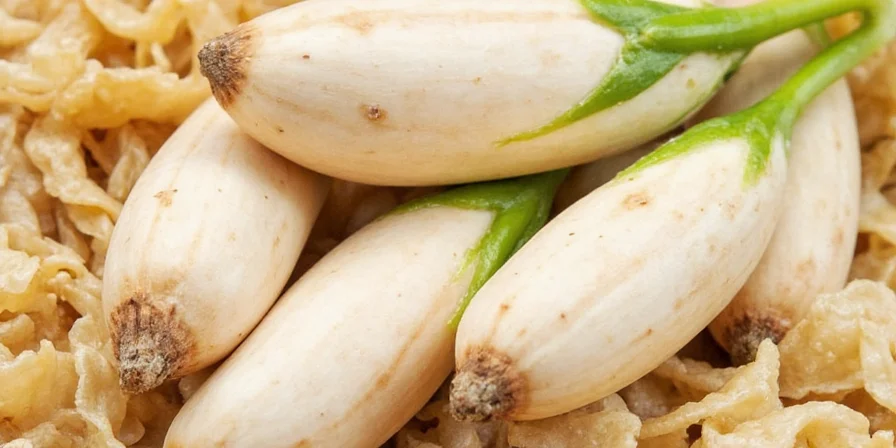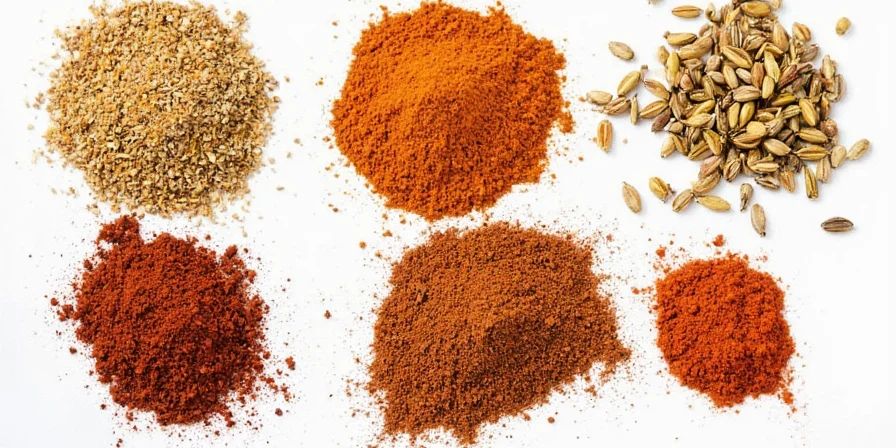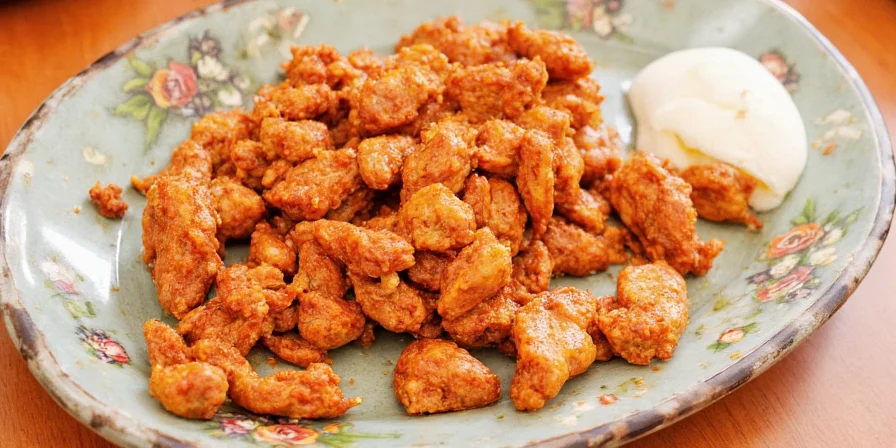7 Thai Ingredients That Will Spice Up Your Life (And Kitchen!)
If you’ve ever bitten into a green curry and felt your soul ignite with flavor, or tasted a pad thai so perfectly balanced it made you rethink your entire cooking career, then you already know: Thai cuisine is magic. But behind every great dish is a cast of amazing ingredients — many of which can easily be found outside of Thailand.
In this article, we’ll take a tour through seven essential Thai ingredients that not only add depth to your dishes but also transport your taste buds straight to the streets of Bangkok. Bonus? We'll throw in some pro tips for using them like a local!
Table of Contents
- 1. Bird’s Eye Chili – The Fiery Heart of Thai Food
- 2. Fish Sauce – The Umami Powerhouse
- 3. Lemongrass – Citrus in Stick Form
- 4. Galangal – Ginger’s Sophisticated Cousin
- 5. Kaffir Lime Leaves – The Secret Weapon
- 6. Shrimp Paste – Pungent, But Worth It
- 7. Coconut Milk – Creamy Balance Master
- Final Thoughts
1. Bird’s Eye Chili – The Fiery Heart of Thai Food 🔥

Known locally as prik kee noo, the bird’s eye chili might look tiny, but don’t let its size fool you — it packs a punch stronger than most jalapeños. Found in nearly every spicy Thai dish — from som tam to tom yum — this chili adds both heat and flavor.
- TIP: Wear gloves when chopping! Seriously, your eyes will thank you.
- Use in: Green curry paste, papaya salad, nam jim (dipping sauce).
- Substitute: Serrano peppers if you want less heat.
2. Fish Sauce – The Umami Powerhouse 🍲

Fish sauce, or nám plaa, is the backbone of Thai flavor. Salty, pungent, and full of umami, this fermented fish elixir is used in everything from soups to marinades to dipping sauces.
- TIP: Buy quality stuff — it makes all the difference. Look for brands like Tiparos or Three Crabs.
- Use in: Pad Thai, green curry, larb, dressings.
- Pro Hack: Add a splash to stir-fries instead of salt for extra savoriness.
3. Lemongrass – Citrus in Stick Form 🍋

This tall, grassy stalk smells like lemon and tastes like summer. Used in soups, curries, and teas, lemongrass gives Thai food its signature bright, clean aroma without being overpowering.
- TIP: Pound the stalks before adding to help release the oils.
- Use in: Tom yum, Thai basil pork, grilled marinades.
- Pro Hack: Freeze chopped lemongrass for easy use later — no need to thaw!
4. Galangal – Ginger’s Sophisticated Cousin 🧄

Galangal looks like ginger but has a much more complex flavor — think piney, peppery, and slightly earthy. It’s a must-have in Thai curries and soups, especially tom kha gai.
- TIP: Use fresh if possible; frozen works in a pinch.
- Use in: Red curry, tom kha soup, Isaan-style salads.
- Pro Hack: Store unpeeled roots in the fridge wrapped in foil for up to a week.
5. Kaffir Lime Leaves – The Secret Weapon 🍃

These glossy, double-lobed leaves smell like citrus and perfume Thai dishes with an almost floral brightness. You won’t find this flavor anywhere else in world cuisine.
- TIP: Tear or crush the leaves before adding to help release their oils.
- Use in: Curries, soups, steamed fish.
- Pro Hack: Frozen leaves keep well — just don’t substitute bay leaves. They’re not the same!
6. Shrimp Paste – Pungent, But Worth It 🦐

Also known as kapi, shrimp paste is intensely salty and funky — kind of like the Marmite of Thai ingredients. A little goes a long way, and it transforms dishes by adding deep umami notes.
- TIP: Toast it lightly before using to reduce its funkiness and enhance flavor.
- Use in: Nam prik (chili dips), curries, pad Thai (especially street vendor versions).
- Pro Hack: Wrap unused portions in plastic and freeze — it lasts forever!
7. Coconut Milk – Creamy Balance Master 🥥

Thai coconut milk is thicker and richer than regular coconut milk — ideal for making creamy curries and desserts. It balances out fiery chilies and sharp flavors beautifully.
- TIP: Always shake the can before opening to blend the cream and liquid layers.
- Use in: Massaman curry, panang curry, mango sticky rice.
- Pro Hack: Chill the can overnight so the cream solidifies on top — scoop it out for a richer base.
Final Thoughts
Thai cuisine is more than just pad thai and spring rolls — it’s a symphony of balance between sweet, salty, sour, and spicy. And the foundation of that balance? A handful of powerful, flavorful ingredients that bring life to every bite.
Whether you're a seasoned home cook or just starting your spice journey, mastering these seven Thai staples will open the door to a world of vibrant, aromatic, and deeply satisfying dishes. So go ahead — stock your pantry, tie on your apron, and let your kitchen travel to Thailand.
Quick Reference Table
| Ingredient | Flavor Profile | Common Dishes | Storage Tips |
|---|---|---|---|
| Bird’s Eye Chili | Fiery, fruity heat | Green curry, som tam | Refrigerate in paper bag |
| Fish Sauce | Salty, umami-rich | Pad Thai, dressings | Store in cool, dark place |
| Lemongrass | Citrusy, herbal | Tom yum, marinades | Wrap in damp towel, refrigerate |
| Galangal | Piney, peppery, earthy | Curries, soups | Store unpeeled in foil |
| Kaffir Lime Leaves | Floral, citrusy | Red curry, steamers | Freeze flat in bag |
| Shrimp Paste | Briny, pungent | Nam prik, curries | Wrap tightly, freeze |
| Coconut Milk | Creamy, mild sweetness | Massaman curry, desserts | Store unopened at room temp |











 浙公网安备
33010002000092号
浙公网安备
33010002000092号 浙B2-20120091-4
浙B2-20120091-4